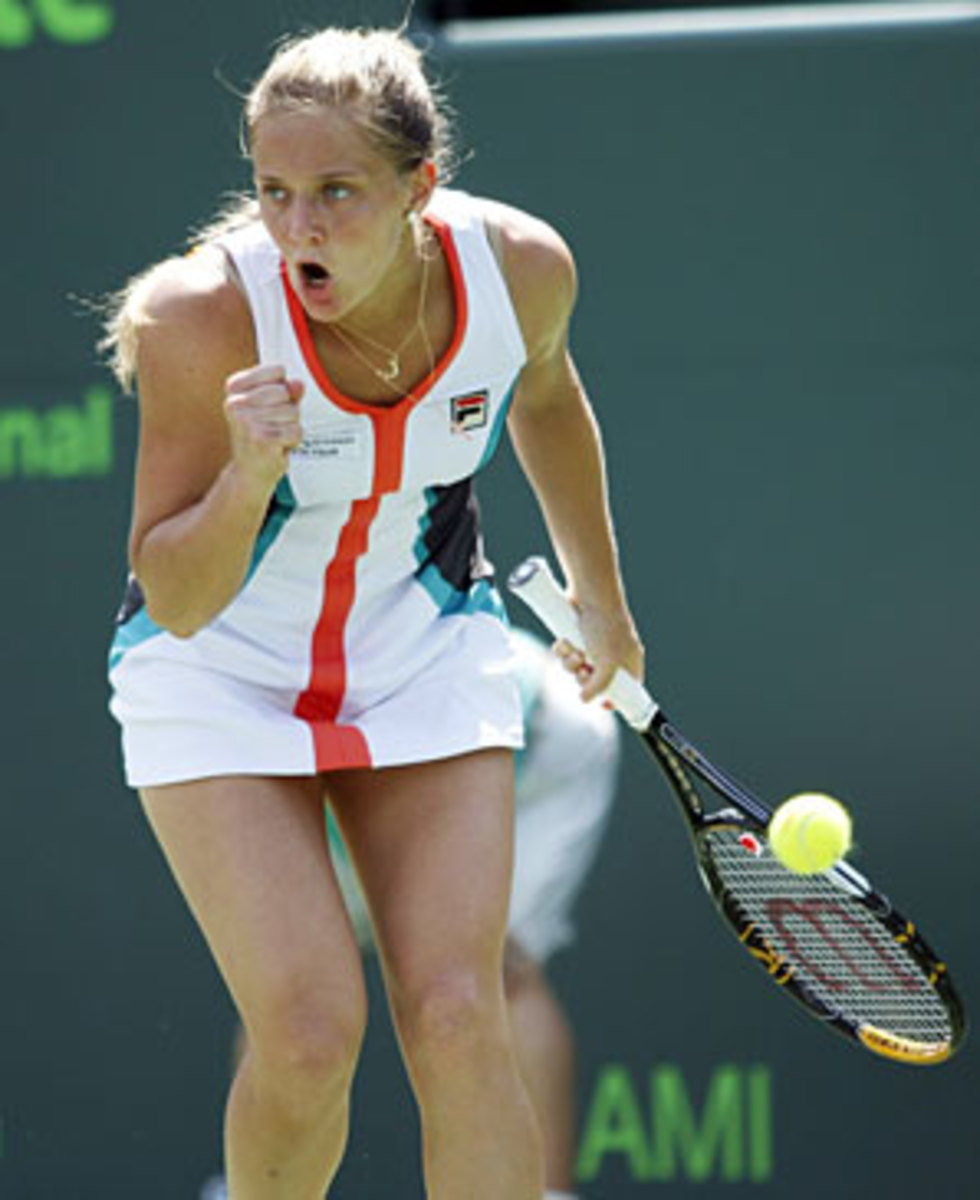
Best of Five: Surging Fish wins again, Chakvetadze returns, more
1. Go Fish: He never quite had Andy Roddick's game. He quite never had the polish and Harvard pedigree of James Blake. He never had a twin, nor the physique of an NBA forward. So it is that, too often, Mardy Fish has been the odd man out of the discussion about American tennis. Yet at the age of 28 -- and, not coincidentally, a good 25 pounds lighter than he's been in the past -- Fish is playing some of the best tennis of his career. In Atlanta, he beat Roddick in the semifinals and then, as on-court temperatures approached 150 degrees, outlasted John Isner in a third-set tiebreak to win his second event in a row.
2. Playoff fever: Whichever USTA employee came up with the "national playoff" idea should be entitled to a sizable raise. You know, like a few days worth of Arlen Kantarian's former salary. The "playoff," whereby the winner of the national competition earns entry into the U.S. Open qualifying event, inspired a lot of good will, a lot of attention -- and a lot of neat stories. After the men's final in the Atlanta ATP, the "playoff" final pitted Cecil Mamiit, a 34-year-old once ranked in the Top 100, against Blake Strode, a former All-American at Arkansas who deferred admission to Harvard Law School to try his hand on the pro tour. Strode won in three sets. But really, the real winner is this promotion.
3. Team effort: The season is short, the scoring is obscure, the business model boggles the mind. Yet World TeamTennis is one of the real gems of the sport. I took the kids to the New York Sportimes a few nights ago and came away wondering why more of an effort isn't made to accommodate the WTT: tennis meets the state fair. There are men and women; veterans and young players; stars and no-namers. There's music between points, goofy mascots, a quasi-halftime and -- of course -- the team format. Some of it works; some of it feels gimmicky and scattered. And who cares? In the end, it's a fun and affordable night out, a nice expression of tennis and an antidote to some of the cynicism in sports. American readers, bookmark this for next summer.
4. Guessing games:Serena Williams stepped on glass and injured her left foot. No, wait, her right foot. And it wasn't glass. But no one is saying what it was. And she entered the U.S. Open. But the WTA says she's questionable for the U.S. Open. Which gives her something in common with defending champ Juan Martin del Potro. Despite a wrist injury that's ruined his 2010, he entered as well. But his doctor says he'll miss the Open and won't play until Bangkok. And his agent says there's no exact return date. The point is this: In other sports there exists a disabled list or an injured reserve. The athlete's injury and estimated time of recovery are made readily available. In tennis? Your guess is as good as anyone's. And the WTA's and ATP's. The players are independent contractors, not required to disclose every ache and pain. Agents are usually as transparent as the water in the Gulf of Mexico these days. And the result, unfortunately, is a lot of confusion and conflicting reports and, worst of all, skepticism. While the tours are figuring out how to upgrade the television footprint, reduce player injury and take a stand on technology, here's another item for the agenda: issue injuries reports in a more credible manner. Fans -- you know, the folks who buy tickets and watch on TV and patronize sponsors -- deserve better.
5. On the rebound: Ending on a positive note, it was nice to see Anna Chakvetadze win the title in Portoroz. A top five player not all that long ago, Chakvetadze has struggled for more than two years and dropped out of the Top 100 recently. One of the real underreported stories in tennis, her downfall coincided with a harrowing home invasion during which she was tied down and robbed at gunpoint. Let's hope this title suggests that her game has returned and, more important, she's back in a good "head space," as they say.





